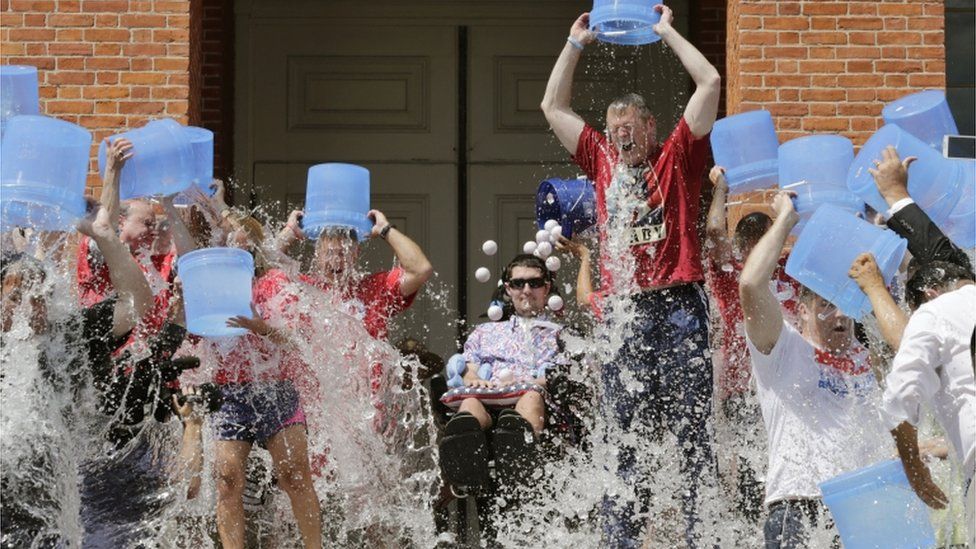Ice bucket challenge helped spur ALS discovery, scientists say
- Published

Money raised from the Ice Bucket Challenge that went viral last year has significantly boosted research into ALS, scientists at Johns Hopkins say.
They say it has helped them to understand more about a dysfunctional protein - TDP-43 - a mystery scientists have been studying for decades.
ALS is a rare condition affecting the nervous system.
Social media was awash with videos of people pouring cold water over their heads to raise money for ALS last year.
More than 17 million people uploaded videos to Facebook, including many celebrities who rose to the challenge, which were then watched by 440 million people worldwide.
'Critical time'
A new study published by Johns Hopkins researchers in Science journal last week credits the Ice Bucket Challenge with helping them to unravel the mystery behind a protein called TDP-43, which in more than 90% of ALS cases is dysfunctional.
"For the past decade we've been trying to figure out exactly what it is doing, and now I think we have finally figured it out," Jonathan Ling, of Johns Hopkins Medicine, said in a YouTube video explaining the university's latest breakthrough.
"The best part is it can be fixed, so with any luck this could lead to the possibility of a cure or at least a slowing down of this terrible disease," he continues.
"The money came at a critical time when we needed it," professor Philip Wong added.
However, they warned that the work was ongoing and many current ALS sufferers would not necessarily see the benefits of the research.
In the US, the ALS Association - which represents people with amyotrophic lateral sclerosis (also known as Lou Gehrig's disease) and all motor neurone disorders - received $115m in donations during the months of August and September, when the challenge was at its peak.
The American charity says the money helped triple the amount it spends on research every year.
Up to 15,000 people in the US are reported to be suffering from ALS.
What is motor neurone disease (MND)?
- fatal, rapidly progressive disease that affects the brain and spinal cord
- attacks nerves that control movement so muscles refuse to work (sensory nerves are not usually affected)
- can leave people locked in a failing body, unable to move, talk and eventually, breathe
- affects people from all communities
- kills around a third of people within a year of diagnosis and more than half within two years
- there is no cure
- Published2 August 2015
- Published2 September 2014